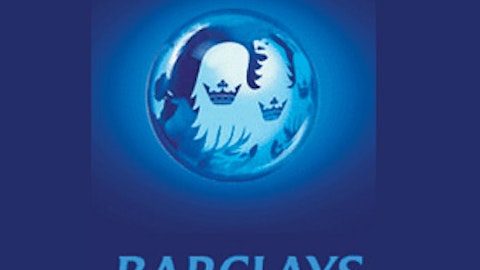
The divergence between the growth prospects of traditional and developing markets is borne out by latest International Monetary Fund’s (IMF) growth projections, which expect developing nations and emerging markets to expand 5.3% and 5.7% in 2013 and 2014, respectively. By comparison, it anticipates that the US economy will rise 1.9% this year and 3% in 2014, while eurozone GDP is forecast to dip 0.3% in 2013 before rebounding just 1.1% next year.
Bubbly activity in these developing geographies can create large opportunities for many London-listed firms. Today, I am looking at British American Tobacco plc (LON:BATS) and assessing whether its operations in these regions are likely to underpin solid earnings growth.
Asia-Pacific demand continues to surge
British American Tobacco plc (LON:BATS) advised in yesterday’s interims that group revenue rose 5% at constant exchange rates in the January-March period, although total cigarette volumes dropped 3.7% to 160 billion sticks. The company noted, however, that it witnessed solid demand growth in many markets, particularly Bangladesh, Vietnam, and Pakistan. Indeed, demand from the particularly lucrative Asia-Pacific region advanced 6.7% on-year to 48 billion sticks.
By comparison, Western European demand slumped 10.3% to 26 billion, and consumption from the Americas fell 13.5% to 32 billion, although substantial trade inventory movements in key customer Brazil accounted for much of this. Demand from Eastern Europe, the Middle East, and Africa nudged marginally lower to 54 billion.
Despite falling volumes, British American Tobacco plc (LON:BATS) was still able to post revenue growth due to the considerable pricing power of its “Global Drive Brands” stable, comprising Lucky Strike,Dunhill, Pall Mall and Kent. Despite weakening demand elsewhere, total demand for these labels rose 1% in the first quarter.
Specifically, solid growth in Indonesia, South Korea, and the Middle East drove Dunhill sales 5% higher, while Pall Mall volumes jumped 9%, helped in part by rising demand from Pakistan and Chile.
An estimated 80% of all cigarette demand originates from developing regions, leaving the firm in pole position to latch onto growing demand in these markets. The company, which already operates in more than 180 markets, is stepping up activity in emerging regions to drive future growth. It invested heavily in Indonesia last year and launched its Dunhill brand in the country last spring, which represented the fastest-growing and most successful introduction of an international “kretek” brand there.
So is British American Tobacco a buy?
Broker Investec expects earnings per share to gallop 11% higher in 2013 to 231 pence, before staging a further 10% advance next year to 255 pence. British American Tobacco plc (LON:BATS) currently trades on a P/E rating of 15.5 and 14.1 for this year and next, trading at a premium to a forward earnings multiple of 13.2 for the whole tobacco sector.
However, the company has built dividends steadily in recent years, and hiked 2012’s full-year payment 7% to 134.9 pence. And Investec expects this to accelerate to 151.3 pence and 166.8 pence this year and next, providing yields of 4.2% and 4.7%. This compares with an average forward yield of 3.3% for the FTSE 100.
I believe that exciting earnings prospects, underpinned by rising developing market revenues that should maintain an ultra-progressive attractive dividend policy, makes British American Tobacco plc (LON:BATS) a solid stock market pick.
The article Is British American Tobacco an Exciting Emerging Market Play? originally appeared on Fool.com and is written by Royston Wild.
Fool contributor Royston Wild has no position in any stocks mentioned, and neither does The Motley Fool.
Copyright © 1995 – 2013 The Motley Fool, LLC. All rights reserved. The Motley Fool has a disclosure policy.


